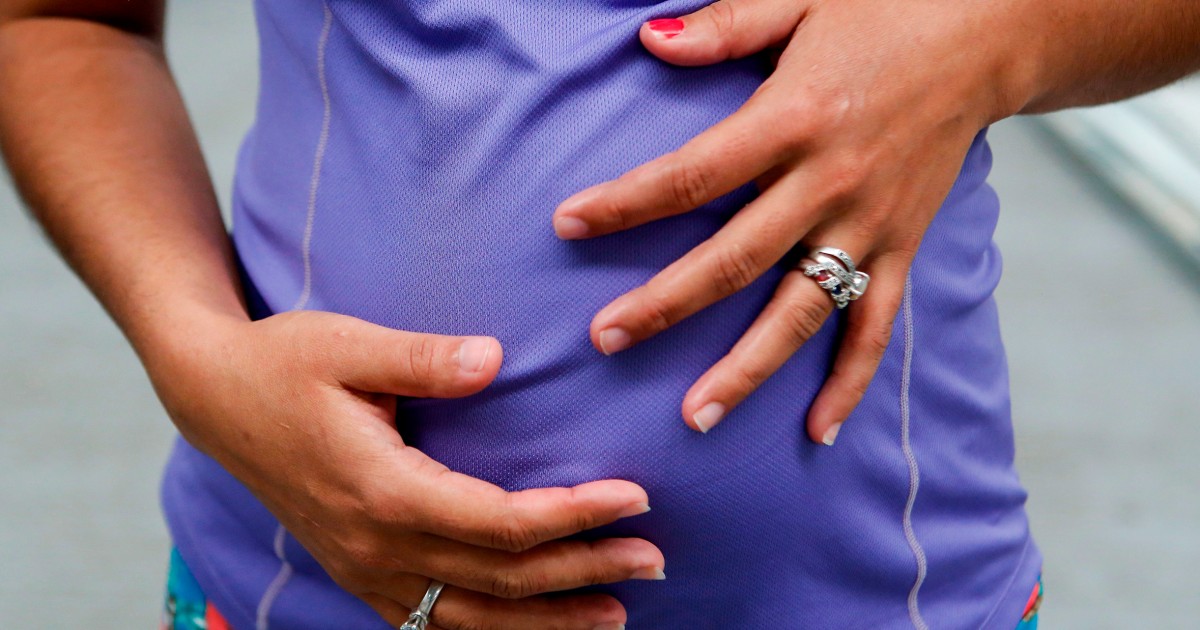CAPE TOWN, South Africa — A low-cost device, along with a quick package of treatments to stop blood loss, could help prevent an estimated 22,000 maternal deaths a year, according to research published Tuesday.
The study, published in the New England Journal of Medicineinvestigated ways to detect and reduce the prevalence of postpartum haemorrhage, the leading cause of maternal mortality worldwide, and the second leading cause in the US, behind mental health conditions.
The researchers looked at the use of a device called a calibrated plastic field, essentially a plastic bag with labels to identify levels of blood loss up to 500 milliliters, which is considered the baseline for postpartum hemorrhage. They concluded that use of the device nearly doubled the rate of accurate detection of postpartum hemorrhage compared with visual estimation of blood loss, as many healthcare providers do.
Providers who then administered a package of treatments within 15 minutes as measured, including uterine massage, medication to induce contractions and stop bleeding, intravenous fluids, and a physical exam, saw a 60% reduction in severe blood loss among patients in relation to providers. who administered the treatments one by one over a longer time.
Postpartum hemorrhage is a serious but rare condition characterized by heavy bleeding that causes a severe drop in blood pressure. It affects 1% to 5% of women who give birth, and people with blood clotting disorders face a higher risk. An estimated 14 million women a year experience postpartum haemorrhage worldwide, resulting in some 70,000 deaths. according to the World Health Organization.
Why do women keep dying? It’s because we don’t detect cases and we don’t treat them early enough,” said lead author of the new study, Dr. Arri Coomarasamy, a professor at the University of Birmingham in the United Kingdom.
«If you control the bleeding early then you win, and if you don’t then you really are fighting a losing battle,» he added.
That’s why the interventions proposed in the study «could be a game changer,» said Dr. Willibald Zeck, head of sexual and reproductive health and rights at the United Nations Population Fund, who was not involved in the trial.
The study involved more than 210,000 women at 80 hospitals in Kenya, Nigeria, South Africa and Tanzania. (About 70% of global maternal deaths occurred in sub-Saharan Africa in 2020, according to a WHO report.) Among the participants, 17 patients treated with the proposed package of interventions died, compared with 28 receiving standard care.
Traditionally, postpartum hemorrhage treatments are given sequentially as providers assess what works, the new study noted. But Coomarasamy and his colleagues, who presented their findings at the International Conference on Maternal and Newborn Health in Cape Town, are pushing for multiple treatments to be given simultaneously to help save precious time.
“It doesn’t matter which one works in the end if what you want to do is stop the bleeding,” Coomarasamy said. “Time is running out and the woman is bleeding; that’s where the problem is, and that’s where the bulge makes a real difference.»
Widespread implementation of the proposed regimen would require governments, especially in low-income countries, to supply calibrated drapes and treatment package components, including two types of drugs, along with staff trained to administer them, the researchers said.
Some of these efforts are already underway. The Bill & Melinda Gates Foundation, which funded the study, will pay for a year’s supply of calibrated drapes at the 80 hospitals that took part in the trial, the researchers said.
Allisyn Moran, director of WHO’s maternal health unit, who was also not involved in the trial, noted that most of the study providers who administered the proposed treatment regimen were midwives.
“It’s an opportunity for us, too, to think about how we really strengthen midwifery care and midwives in all the different settings,” Moran said.
However, the study has some limitations: it did not measure patients’ experiences of the care they received, nor did it include hospitals in high-income countries.
But the researchers said they hope the results can be generalized to other countries, noting the persistence of postpartum hemorrhage as a cause of maternal death in the US.
A panel of independent experts is expected to review the study’s findings and determine whether the WHO should officially endorse the proposed interventions, a process that could take months.

